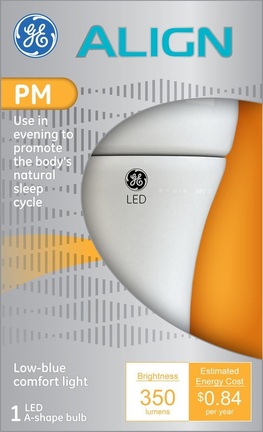
This week leading up to Daylight Savings Time is Sleep Awareness Week. (Sunday spring ahead and lose an hour of sleep ... unless you get to bed early.)
While there are stories about famous people who accomplished a lot on little sleep, keep in mind that these are just anecdotes. Study after study confirms how important it is to get adequate sleep -- and while these don't agree exactly on how much is ideal (this probably varies by person), 7-8 hours per night seems to be a pretty consistent recommendation.
In fact, since REM cycles are about 90 minutes long, getting 7.5 hours of sleep means getting in about 5 solid cycles. (Waking at the end of a REM cycle -- when you're in the lighter stages of sleep -- helps you to feel more ready to wake up, as opposed to being woken from the middle of a deep sleep.)
At the same time, the science seems to say that sleeping too much is also a problem. So it's important to rest the body, allow for all the healing that takes place when we sleep, and then get up and start being useful with the day!
Of course for many people, getting to sleep at night is easier said than done. Millions of people struggle to fall asleep easily. Well one trick is to skip the "blue lights" before bedtime. This includes TV, computer, and phone screens as well as daylight colored CFLs or LEDs. Light bulbs now sell with "color temperatures" on them, measured in degrees Kelvin, or "K." Incandescent bulbs are a warm 2700K, and new LEDs can mimic this pretty well. But watch out for those rated 3500K and above prior to bedtime. (On the other hand, blue screens can help to wake you up in the morning.)
Some bulb manufacturers are making bulbs that they claim will help you fall asleep more quickly based on this science of color temperature, and it seems GE's Align PM might be best suited for this purpose. Yes, it's an expensive bulb, but it's rated to last more than 20 years.
Meanwhile, there are plenty of supplements designed to help you fall asleep more easily, and our Sleep Tight GABA supplement is one of the most unique. GABA's been around for this purpose for ages, but it's known to barely cross the blood brain barrier and get where it's needed. Our specially fermented form of GABA is designed to address this and get you results.
However you do it, consider spending about a week getting to bed earlier and getting a healthy amount of sleep. See how you feel and maybe you'll make a habit of it. We know we feel a whole lot better about getting our day started and being productive when we've gotten in plenty of shut eye!
While there are stories about famous people who accomplished a lot on little sleep, keep in mind that these are just anecdotes. Study after study confirms how important it is to get adequate sleep -- and while these don't agree exactly on how much is ideal (this probably varies by person), 7-8 hours per night seems to be a pretty consistent recommendation.
In fact, since REM cycles are about 90 minutes long, getting 7.5 hours of sleep means getting in about 5 solid cycles. (Waking at the end of a REM cycle -- when you're in the lighter stages of sleep -- helps you to feel more ready to wake up, as opposed to being woken from the middle of a deep sleep.)
At the same time, the science seems to say that sleeping too much is also a problem. So it's important to rest the body, allow for all the healing that takes place when we sleep, and then get up and start being useful with the day!
Of course for many people, getting to sleep at night is easier said than done. Millions of people struggle to fall asleep easily. Well one trick is to skip the "blue lights" before bedtime. This includes TV, computer, and phone screens as well as daylight colored CFLs or LEDs. Light bulbs now sell with "color temperatures" on them, measured in degrees Kelvin, or "K." Incandescent bulbs are a warm 2700K, and new LEDs can mimic this pretty well. But watch out for those rated 3500K and above prior to bedtime. (On the other hand, blue screens can help to wake you up in the morning.)
Some bulb manufacturers are making bulbs that they claim will help you fall asleep more quickly based on this science of color temperature, and it seems GE's Align PM might be best suited for this purpose. Yes, it's an expensive bulb, but it's rated to last more than 20 years.
Meanwhile, there are plenty of supplements designed to help you fall asleep more easily, and our Sleep Tight GABA supplement is one of the most unique. GABA's been around for this purpose for ages, but it's known to barely cross the blood brain barrier and get where it's needed. Our specially fermented form of GABA is designed to address this and get you results.
However you do it, consider spending about a week getting to bed earlier and getting a healthy amount of sleep. See how you feel and maybe you'll make a habit of it. We know we feel a whole lot better about getting our day started and being productive when we've gotten in plenty of shut eye!

 RSS Feed
RSS Feed